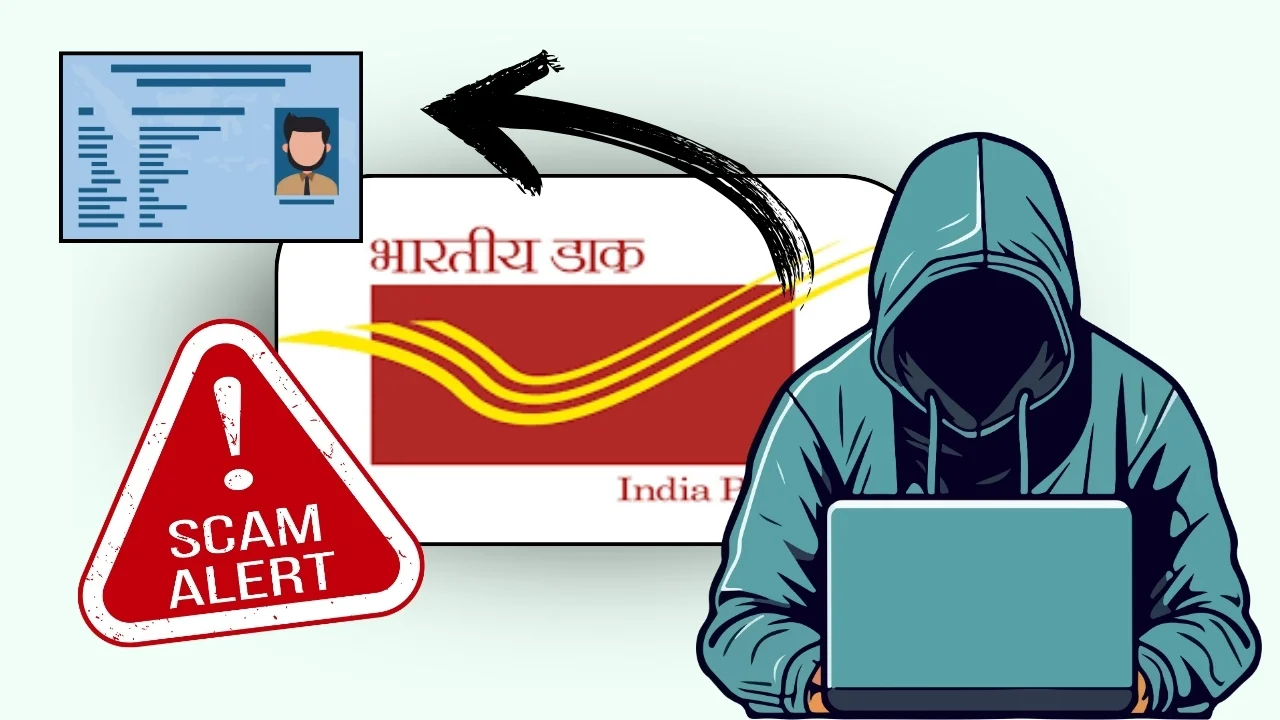In recent times, customers of India Post Payments Bank (IPPB) have been targeted by an India Post Payment Bank PAN Card scam that has sparked warnings from the Press Information Bureau (PIB). Fraudsters send messages claiming that accounts will be blocked unless users update their PAN card details. These fraudulent messages are a serious threat, designed to steal personal information and compromise financial security.
What is the India Post Payment Bank PAN Card Scam?
The scam involves criminals impersonating representatives of India Post or government officials. They send phishing messages warning customers that their PAN card is linked to illegal activities or that they must update their details to avoid account suspension. Victims are urged to click on malicious links, leading to fake websites that steal sensitive information, including PAN numbers and bank account details.
How the Scam Works
- Fake Alerts: Scammers claim that failure to update PAN details will lead to account blockage within 24 hours.
- Suspicious Links: Users are directed to click on links that resemble legitimate websites but are designed to harvest personal data.
- Pressure Tactics: Fraudsters create urgency to compel victims to act quickly without verifying the communication.
PIB’s Official Warning
The Press Information Bureau has clarified that the alerts are entirely false. According to PIB, “The claim that IPPB accounts will be blocked if PAN details are not updated is false.” India Post Payments Bank has confirmed that it does not send such notifications, urging the public to stay cautious.
How to Stay Safe
Here are some essential tips to protect yourself from the India Post Payment Bank PAN Card Scam:
- Avoid Clicking on Suspicious Links: Never click on links in unsolicited messages or emails.
- Verify the Source: Contact official customer service channels to confirm the authenticity of any communication.
- Secure Your Accounts: Regularly update your passwords and monitor your bank statements for unauthorized transactions.
- Be Cautious with Personal Information: Never share sensitive details like PAN numbers or passwords over unsecured channels.
- Check Email Addresses: Fraudulent emails often come from addresses that look similar to official ones but have minor differences.
Common Signs of Phishing Scams
Being aware of phishing tactics can help you avoid falling victim. Here are some red flags:
- Urgent Language: Claims that immediate action is required to avoid account suspension.
- Generic Greetings: Emails addressed to “Dear Customer” instead of your name.
- Poor Grammar: Professional organizations rarely make grammatical errors in official communications.
- Suspicious Links: Hover over links to check if the URL matches the legitimate domain.
- Requests for Sensitive Information: Legitimate companies never ask for passwords or personal details via email.
What to Do If You Encounter the Scam
If you receive a phishing message related to the India Post Payment Bank PAN Card Scam, take these steps:
- Report the Message: Notify India Post Payments Bank or PIB about the fraudulent communication.
- Do Not Respond: Avoid replying to the message or clicking any links.
- Contact Authorities: Report the scam to cybercrime agencies or your local police.
- Notify Credit Agencies: If you’ve shared sensitive details, consider placing a fraud alert on your credit report.
Reporting Phishing Scams
You can report phishing scams to the following entities:
- Anti-Phishing Working Group: Send emails to report@apwg.org.
- Cybercrime Portal: Visit the national cybercrime reporting portal to file a complaint.
- Local Authorities: Inform your local law enforcement for further investigation.
Stay Vigilant and Protect Your Information
The India Post Payment Bank PAN Card Scam is a reminder to always be cautious about unsolicited messages. Fraudsters use various tricks to exploit unsuspecting individuals, but staying informed and vigilant can keep your finances and personal information safe. By following the precautions outlined above, you can effectively safeguard yourself from such scams.
Remember, if something seems too urgent or suspicious, it’s always better to double-check through official channels. Protect your financial security by staying alert!
